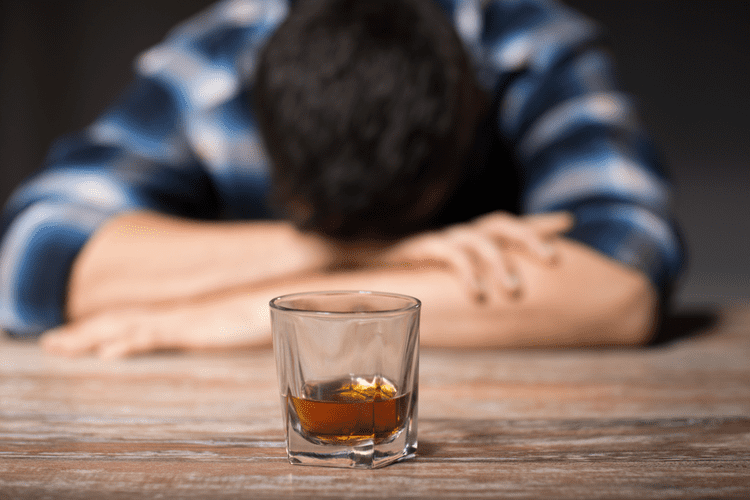The Four Stages of Sobriety What to expect when you quit drinking. by Benya Clark Exploring Sobriety
During this time, you may experience a range of uncomfortable symptoms, including anxiety, tremors, headaches, and nausea. By understanding the stages of alcohol withdrawal and the factors that influence the timeline, individuals can better prepare themselves for the challenges ahead. Seeking professional support, engaging in therapy, and developing a strong support network are essential for successfully navigating the withdrawal process and maintaining long-term sobriety. However, for some, the physical symptoms will continue even after seven days. If you’re still experiencing physical alcohol withdrawal symptoms after a week, you should contact your healthcare provider immediately.
- His comedic gifts—linguistic, physical, theatrical—are evident from his earliest performances.
- Acknowledging and celebrating the hard work of recovery is helpful for keeping you motivated and reminding you why you took this brave step toward sobriety in the first place.
- Detoxification involves removing alcohol from the body, rehabilitation involves therapy and counseling to address the underlying issues of addiction, and maintenance involves ongoing support to prevent relapse.
- Each stage serves a specific purpose and builds upon the previous one, creating a solid foundation for lasting change.
- Other terms for AUD include alcohol addiction, alcohol dependence, and alcoholism.
Supportive Networks and Aftercare Programs
It’s when the body clears itself of drugs and deals with withdrawal symptoms. It’s often the first treatment step, paving the way for recovery efforts. Support networks are crucial, giving advice, empathy, and motivation during tough times. These communities are instrumental in maintaining a sober, healthy lifestyle. The link between mental health and substance abuse recovery is crucial. When mental illnesses are also present, recovery becomes much harder17.

Intensive Outpatient Programs
You can expect to experience alcohol withdrawal symptoms during the acute phase of alcohol detoxification. These symptoms can range from mild symptoms such as headache and anxiety to more serious alcohol withdrawal symptoms such as tremors, hallucinations, and seizures. No, everyone may not experience the four stages of alcohol withdrawal syndrome. The severity of alcohol withdrawal depends on the several factors, including the duration and extent of alcohol consumption.
When To Seek Help for Alcohol Addiction
The brain and body need time to return to functioning without the substance. Medical support can help keep you safe and as comfortable as possible during the detox process. Post-acute withdrawal syndrome (PAWS) involves withdrawal symptoms that persist past the detox period. Such symptoms are often related to mood and may include irritability, anxiety, depression, sleep problems, and fatigue. It’s important to get professional support if you are trying to cut down on your drinking.
- Therefore, it’s important to ask questions to ensure that the program you want meets all of your needs.
- If your symptoms persist for a long time, you may have post-acute withdrawal syndrome (PAWS).
- This can include toxic relationships in which you feel unheard, misunderstood, unsupported, demeaned, unsafe, and/or attacked.
- “It’s been really tough, constant inner voice trying to persuade me just the one-night drinking again would be OK. I have just had to surf the urges, keep busy, and use all my strength.”
- Mental health disorders, such as depression, anxiety, or post-traumatic stress disorder (PTSD), can complicate the withdrawal process.
People have unique experiences after their initial treatment and as they begin recovery. During the various sobriety stages, there are also multiple treatment options available at a California drug rehab. Symptoms of alcohol withdrawal can include anxiety, tremors, sweating, http://www.beonlive.ru/lj/social/archive.php?data=-1585643325.php nausea, vomiting, insomnia, and seizures. In severe cases, delirium tremens (DTs) can occur, which can be life-threatening. The recovery timeline for alcohol addiction varies from person to person. It can take weeks, months, or even years to fully recover from alcohol addiction.
- Sharing your experiences can create a ripple effect of hope and encouragement within your community.
- They provide individuals with a sense of hope, inspiration, and validation.
- It can seem intimidating to look at the end goal and know the many steps it will take to get sober.
- People with alcohol use disorder should be monitored by a medical professional when withdrawing from alcohol.
For example, you may have developed a co-dependent relationship, or a family member, friend, or employer may have been enabling you without even knowing it. Remember to be kind to yourself throughout the process, and don’t be afraid to reach out for support when you need it. If you or someone you love is struggling with addiction, please reach out for help. This tells us that our behavior and habits are linked directly to our cravings. These cravings can be very intense, but they will eventually go away (we’ll discuss more about how to manage cravings later in this post). If we’ve spent any amount of time playing with our brain chemistry, we can expect things to be a little out of whack when we stop.
Day 3-7: Peak of Withdrawal and Potential Complications
Knowing that addiction can develop quickly or over many years helps in creating effective recovery plans. This insight lets healthcare providers offer care that’s caring, thorough, https://volumepillshelper.com/2017/12/ and suited to each patient’s unique recovery needs4. Realizing you need to change is the tough but essential first step toward getting better. The maintenance phase, which can last years, is about staying stable and strong through life’s challenges1. Aftercare, sometimes overlooked, plays a vital role in keeping up the sobriety won from treatment2. It starts in a dark forest of denial and moves through to understanding, then to action, and finally, a long period of keeping steady.

How Long Does It Take to Detox From Alcohol?

People who develop DTs need specialized care, maybe even in an intensive care unit. It can be tempting to try and quit alcohol at home without professional help. However, as mentioned, sometimes people progress to severe alcohol withdrawal symptoms very https://dailywealthy.com/news/page/3 quickly. Without care from healthcare professionals, this can put your life at risk. Detoxification is a critical stage in the journey of alcohol rehabilitation. It involves breaking the physical dependence on alcohol and addressing the withdrawal symptoms that may arise when an individual stops drinking.


+ There are no comments
Add yours